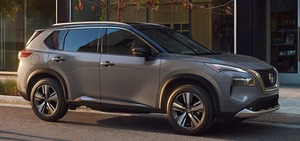Nissan Rogue Years to Avoid
الجسم
While the Nissan Rogue has generally been a popular compact SUV, there are a few model years that have been associated with more significant issues, and potential buyers may want to exercise caution when considering these specific versions. The 2014 Nissan Rogue, for instance, has been reported to have problems with its transmission, resulting in some owners experiencing premature failure.
Additionally, the 2017 model year has been linked to complaints about transmission issues and unreliable electronics. Buyers should be aware of these concerns and may want to conduct thorough research or consider later model years with improved reliability records when shopping for a used Nissan Rogue. To learn more interesting facts about the Nissan Rogue visit autonationx.com.
Here are some general considerations:
2014 Nissan Rogue: Some drivers reported issues with the transmission and CVT (Continuously Variable Transmission) in this model year. It's advisable to check the maintenance history and inquire about any potential transmission issues.
2015 Nissan Rogue: Similar to the 2014 model, the 2015 Rogue had occasional complaints about the CVT. Some drivers experienced jerking or shuddering during acceleration.
2017 Nissan Rogue: There were reports of problems with the air conditioning system in some 2017 models. Owners mentioned issues with insufficient cooling or problems with the A/C compressor.
It's important to note that not all vehicles from these model years will experience these issues, and there are many well-maintained and trouble-free Nissan Rogue vehicles from these years as well. If you're considering purchasing a used Nissan Rogue, it's highly recommended to do a thorough pre-purchase inspection and check the vehicle's maintenance history.
Some common sources for gathering information on vehicle reliability include:
Consumer Reports: They often provide detailed information on the reliability and common issues of various car models.
Research: Look for reviews and ratings from automotive experts and consumer feedback on websites like Edmunds, Kelley Blue Book, and Consumer Reports. Check for any recalls or technical service bulletins (TSBs) related to the specific model year you are interested in.
J.D. Power: J.D. Power conducts automotive research and provides ratings for different aspects of vehicles, including reliability.
Test Drive and Inspection: Before making a purchase, thoroughly inspect the vehicle and take it for a test drive. Pay attention to how the car handles, any unusual noises, and the overall condition.
Vehicle History Report: Obtain a vehicle history report through services like Carfax or AutoCheck. This report can reveal important information about the car's past, including accidents, title issues, and odometer readings.
Edmunds: Edmunds offers expert reviews, consumer reviews, and reliability ratings for various vehicles.
NHTSA (National Highway Traffic Safety Administration): Check for recalls and safety complaints related to specific model years.
Online Forums: Participating in online forums or communities where Nissan Rogue owners discuss their experiences can provide valuable insights.
Consult a Mechanic: If possible, have a trusted mechanic inspect the vehicle. They can identify potential issues that may not be apparent during a standard test drive.
Dealer Service Records: If possible, review the service records of the specific vehicle you are interested in to see if there were any recurring issues.
Always keep in mind that no car is perfect, and even reliable models may have occasional issues. Additionally, automakers may make improvements and address issues in later model years. It's essential to do thorough research and possibly have a trusted mechanic inspect any used car you're considering.













تعليقات